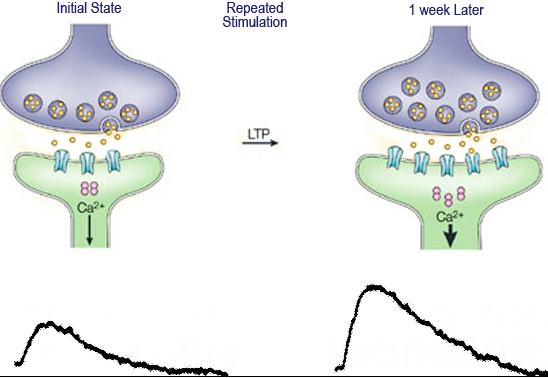Long-term potentiation
In neuroscience, LTP (long-term potentiation) is a long-term enhancement in signal transmission among two neurons which results from stimulating them synchronously. It is one of many phenomena fundamental synaptic plasticity the ability of chemical synapses to change their strength. As memories are thought to be encoded through modification of synaptic strength long-term potentiation is broadly considered one of the major cellular mechanisms which underlie memory and learning.

Long-term potentiation was discove red by Terje Lømo in the rabbit hippocamp us in the year 1966 and has remained a popular subject of research till now. Several modern Long-term potentiation studies find to better understand its basic biology although others aim to draw a causal link among behavioral learning and Long-term potentiation. Still others try to develop techniques pharmacologic or otherwise of enhancing Long-term potentiation to improve learning and memory. Long-term potentiation is also a subject of clinical research, for instance, in the field of addiction medicine and Alzheimer's disease.